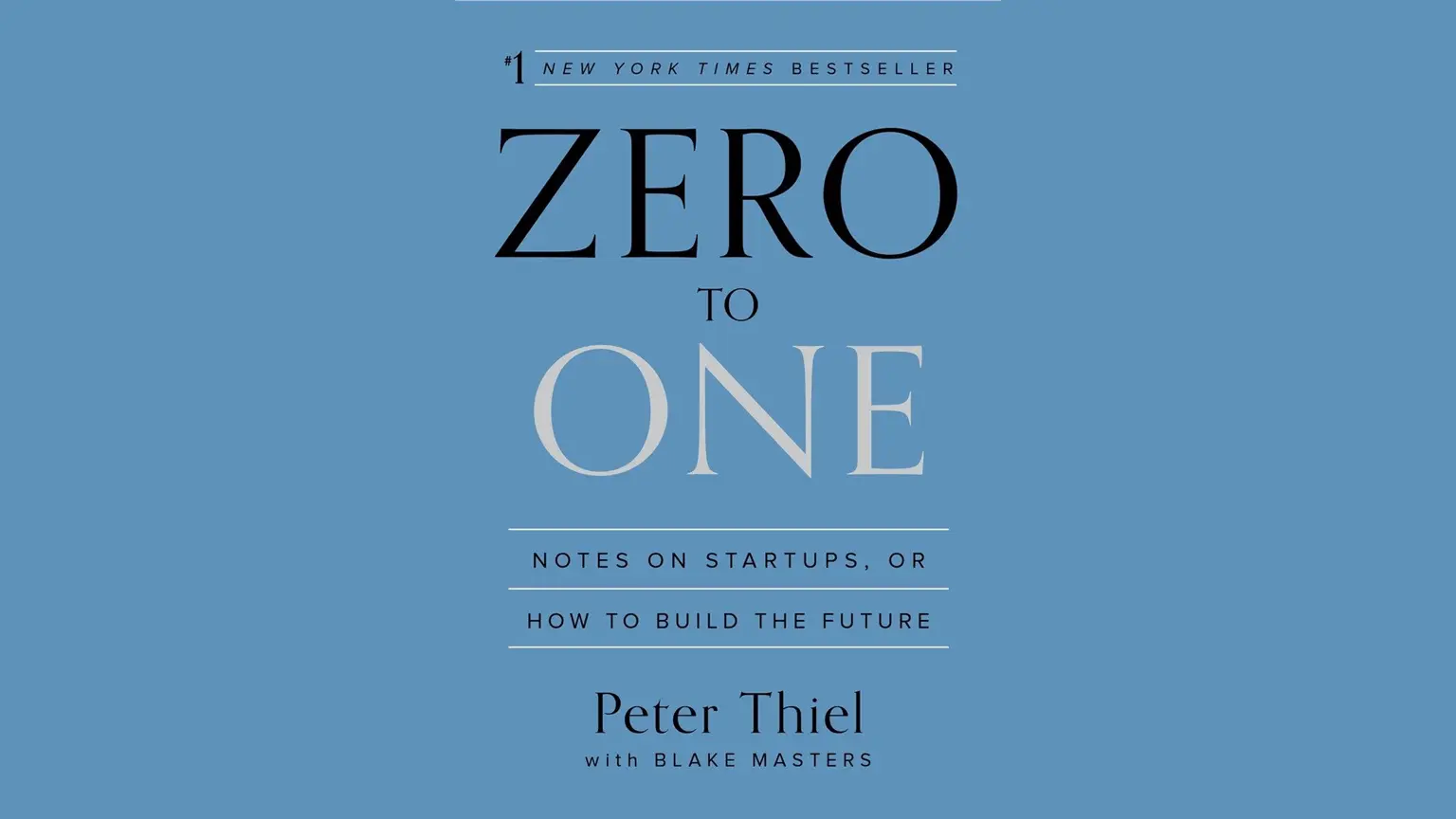In the competitive world of entrepreneurship, Peter Thiel’s groundbreaking book Zero to One offers a new way of thinking about innovation and building successful businesses. This business book, co-authored with Blake Masters, distills lessons learned from Thiel’s experience as co-founder of PayPal and Palantir and his work with the Thiel Foundation.
“This book delivers completely new insights about how to build the future through unique innovation,” writes one reviewer who called it the “best business book I’ve read.” At just 200 pages long, Zero to One by Peter Thiel packs powerful concepts that challenge conventional thinking about business.
The Core Philosophy: Going From 0 to 1
Peter Thiel distinguishes between two types of progress:
- Progress can take one of two forms: horizontal (1 to n) or vertical (0 to 1)
- Horizontal progress (one to n) means copying things that work
- Vertical progress (go from 0 to 1) means doing something new
Thiel says true innovation happens when we make something new rather than iterate on existing ideas. This way of thinking about innovation forms the foundation of his approach to startup success.
7 Startup Secrets From Zero to One
1. Build Monopolies, Not Competitors
Peter Thiel argues that competition destroys profits. Instead of battling rivals, create something so unique that you escape competition altogether. Your product should be least 10 times better than alternatives to dominate a niche.
“All happy companies are different: each one earns a monopoly by solving a unique problem.” –
Peter Thiel
2. Find Value in Unexpected Places
Successful entrepreneurs find value in unexpected places. Rather than following trends, look for opportunities others miss. Thiel’s investment in Facebook (when social networks seemed saturated) exemplifies this principle.
3. The Future Will Be Better Through Technology
Peter Thiel maintains an optimistic view of the future driven by technology. He believes innovation is new and uniquesolutions that makes the future distinctive and can change the world.
4. Proprietary Technology Creates Advantage
Develop proprietary technology that’s better than its closest substitute. Google’s search engine algorithm gave it an unbeatable edge in the early 2000s.
5. Start Small and Dominate
Begin with a tiny market you can own, then expand. Amazon started with books before becoming the “everything store.” This approach helps build a business with strong foundations.
6. Sales Matter as Much as Product
Even brilliant products need distribution. Peter Thiel emphasizes that engineering must be paired with effective sales strategies to reach customers.
7. Founders Should Be Contrarian
The best founders hold convictions that go against consensus but turn out to be right. As Thiel says, “The most contrarian thing of all is not to oppose the crowd but to think for yourself.”
Applying Zero to One Principles Today
The future of progress in America depends on entrepreneurs who create something truly novel. Silicon Valley continues producing companies that take the world from 1 to n, but we need more that go from world from 1 to n to entirely new paradigms.
For early-stage tech founders, these principles provide a roadmap to building valuable companies. The Harvard Innovation Lab and resources like the startup secrets video series help entrepreneurs apply these concepts.
Why This Approach Works
Entrepreneur and investor Peter Thiel developed these ideas through his experience at PayPal and as a venture capitalist. They reflect what he knows to be unpopular but true about business success.
Key benefits include:
- Focus on creating rather than competing
- Building value propositions that can’t be easily copied
- Developing future distinctive and important technologies
Getting Started With Zero to One Thinking
To implement these ideas:
- Read this book to fully grasp the concepts
- Identify an area where you can build the future
- Develop proprietary technology that solves a real problem
- Start small with a definable market
- Scale only after establishing dominance
Resources like the notes on startups from Blake Masters (who co-authored the book) and programs at the harvard innovation lab can help.
Conclusion: Building the Future
Zero to One offers more than startup advice—it presents a philosophy for creating the future of the world. By focusing on vertical progress (zero to one) rather than horizontal (takes the world from 1 to n), entrepreneurs can build the future we want to see.
As Peter Thiel puts it: “The future will be better if we work to create it rather than assume it will happen automatically.” For anyone looking to create a product that matters, these principles from One by Peter Thiel provide essential guidance.
Whether you’re an aspiring entrepreneur and investor or established founder, applying these concepts can help you sustain a business that makes a real impact. The best business strategies often come from learning to think differently—exactly what this book teaches.
- Business Development Consultant Services Houston, TX | Expert Business Consulting
- Strategic Business Advisor Services Houston, TX | Expert Business Consulting
- Business Consulting Services Houston, TX | Expert Business Consulting
- Senior Business Advisor Services Houston, TX | Expert Business Consulting
- Business Advisor Services Houston, TX | Expert Business Consulting

